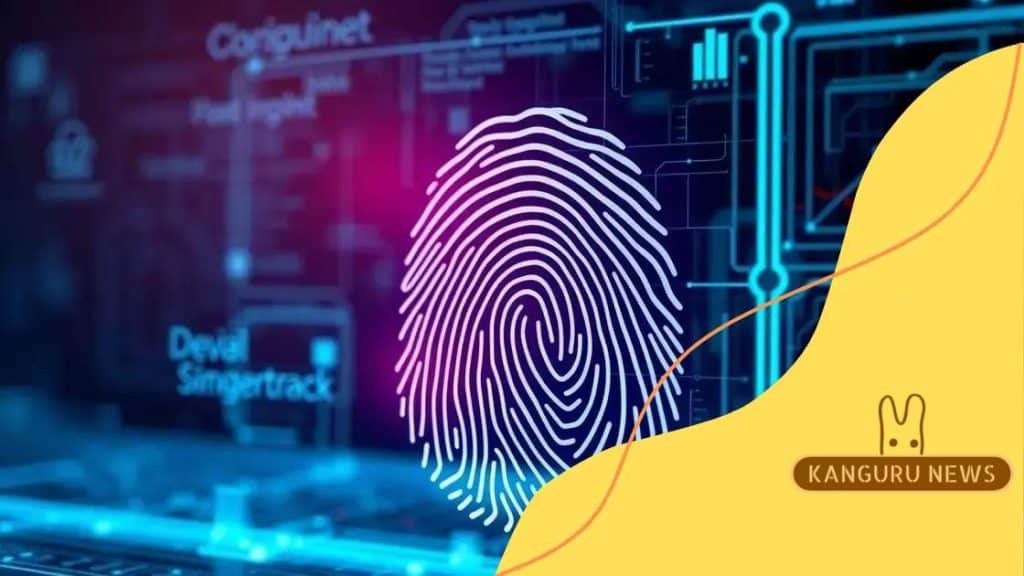The role of blockchain in digital identity verification

Anúncios
The role of blockchain in digital identity verification enhances security by providing a decentralized and immutable ledger, allowing users to control their personal data while reducing fraud and unauthorized access.
The role of blockchain in digital identity verification is becoming increasingly significant. As we navigate a digital world, we often wonder how our identities are protected. Curious about how this technology can bolster security and privacy? Let’s delve into it.
Anúncios
Understanding digital identity verification
Understanding digital identity verification is crucial in today’s online world. It helps ensure that individuals are who they claim to be, protecting personal information and enhancing security. As technology evolves, so do the methods used for digital identity verification.
What is Digital Identity Verification?
Digital identity verification refers to confirming a person’s identity through digital means. This process is commonly used by businesses for online transactions and access to services. Many industries now rely on digital identity verification to prevent fraud and ensure compliance with regulations.
Methods of Digital Identity Verification
There are several methods for verifying digital identities:
Anúncios
- Knowledge-based verification: Users answer security questions to prove their identity.
- Document verification: A scanned ID or passport is checked against databases.
- Biometric verification: Facial recognition or fingerprint scanning ensures user identity.
Each method has its strengths and weaknesses. Knowledge-based verification is simple but can be vulnerable to attacks. Document verification adds security but may involve more effort. Biometric verification offers a high level of security but requires advanced technology.
The Role of Technology
New technologies like blockchain are changing the landscape of digital identity verification. By providing a decentralized and tamper-proof method to store identity information, it enhances trust. With blockchain, users have more control over their data and can share it as needed.
This shift towards blockchain technology is vital as it reduces the risks of data breaches and identity theft. Organizations are increasingly adopting these advanced solutions to safeguard personal information.
Understanding digital identity verification opens up discussions about privacy, security, and the future of online interactions. As we continue to embrace a digital age, knowing how to protect our identities becomes more important than ever.
How blockchain enhances security
How blockchain enhances security is a vital topic in today’s tech-driven society. The technology offers a unique approach that helps safeguard data, making it nearly impossible for hackers to alter records.
What is Blockchain?
Blockchain is a digital ledger technology that records transactions across multiple computers securely. Each block in the chain contains a list of transactions and is linked to the previous one, providing transparency. This architecture helps ensure that once a transaction is recorded, it cannot be changed without altering all subsequent blocks.
Key Features of Blockchain Security
Blockchain enhances security through several features:
- Decentralization: No single entity controls the entire blockchain, reducing the risk of data breaches and failures.
- Immutability: Once data is recorded, it cannot be edited or deleted easily, which prevents fraud.
- Transparency: All transactions are visible to participants, allowing for greater trust and accountability.
These features work together to provide a robust security framework. With decentralization, even if one part of the network is compromised, the data remains safe in other locations.
Furthermore, the use of cryptographic techniques ensures that data stored in the blockchain is secure. Each transaction is encrypted, adding an additional layer of protection. This means that even if a hacker were to access the blockchain, the information would be almost impossible to decipher.
Moreover, blockchain can also incorporate smart contracts, which automate processes when certain conditions are met. This helps reduce human error and increases security by minimizing the chances of manipulation during transactions.
Overall, understanding how blockchain enhances security reveals its potential applications not just in finance, but in various sectors, including healthcare and supply chain management. As organizations seek to improve security, the adoption of blockchain technology is likely to rise, making it a key player in the future of data security.
Real-world applications of blockchain

Real-world applications of blockchain are expanding rapidly across various sectors. This technology is being adopted by industries looking for secure, efficient, and transparent solutions.
Finance and Banking
In finance, blockchain has transformed how transactions are made. It enables faster, cheaper cross-border payments. Traditional banking systems often take days to process international transactions, while blockchain can do it in minutes. This is due to its decentralized nature, which eliminates the need for intermediaries.
Supply Chain Management
Blockchain also plays a crucial role in supply chain management. By providing a transparent and immutable ledger, companies can track the provenance of goods. This helps to ensure product authenticity and quality. With blockchain, all parties involved can access real-time information about the product’s journey, reducing the risk of fraud.
- Traceability: Easily trace the origin of products.
- Quality assurance: Ensure the integrity of ingredients or materials.
- Efficiency: Minimize paperwork and streamline processes.
These benefits lead to increased trust among consumers and businesses.
Healthcare
In healthcare, blockchain can securely store patient records. This ensures that only authorized personnel have access, safeguarding patient privacy. Moreover, blockchain can facilitate smoother sharing of medical records between providers, improving patient care.
By using blockchain, healthcare firms can combat fraud. It provides a secure way to verify the authenticity of drugs in the supply chain, preventing counterfeit products from reaching patients.
Digital Identity
Blockchain also enhances digital identity solutions. Users can have more control over their personal data. They can manage who accesses their information, reducing risks of identity theft. With blockchain, verifying identities can be done swiftly and securely, leading to a safer online experience.
Overall, the real-world applications of blockchain show its transformative potential across different domains. It enhances efficiency, reduces fraud, and increases trust among users. As more industries explore its benefits, the technology is set to become even more prevalent.
Challenges in implementing blockchain identity solutions
Challenges in implementing blockchain identity solutions are important to understand as the technology rises in popularity. While blockchain offers many advantages, there are also hurdles that organizations must overcome.
Technical Complexity
One major challenge is the technical complexity of blockchain systems. Developing and integrating these systems requires skilled professionals with a deep understanding of blockchain technology. Many companies may struggle to find developers who have experience with blockchain, leading to delays in implementation.
Regulatory Compliance
Another challenge is ensuring regulatory compliance. Different regions have various laws related to data privacy and identity verification. Organizations must navigate these legal frameworks to avoid penalties. This complexity can slow down the adoption of blockchain identity solutions.
- Data protection regulations: Compliance with laws like GDPR in Europe.
- Identity verification standards: Meeting industry-specific requirements.
- Cross-border regulations: Dealing with international laws effectively.
Ensuring compliance requires a lot of effort, which can deter organizations from moving forward.
Interoperability Issues
Interoperability is another challenge blockchain faces. Different blockchain networks may not easily communicate with each other. This lack of connectivity can hinder the ability to share identity information across platforms, limiting the effectiveness of the technology.
Furthermore, if organizations use different standards for identity verification, it creates confusion. This can result in fragmented systems that do not work well together, making identity verification less efficient.
User Adoption and Trust
Lastly, user adoption and trust are critical to the success of blockchain identity solutions. Individuals may be hesitant to use new technologies, particularly when it comes to sharing personal information. Building trust in these systems is necessary for widespread acceptance.
Education and awareness programs can help address these concerns. Organizations need to demonstrate the benefits of blockchain technology, assuring users that their data is secure and private.
Future prospects of blockchain in identity verification
Future prospects of blockchain in identity verification are exciting and hold great promise. As technology continues to evolve, blockchain may revolutionize the way we manage identities.
Increased Adoption of Decentralized Systems
One critical trend is the growing adoption of decentralized systems. More organizations are recognizing the advantages of using blockchain for identity verification. This shift could lead to a significant reduction in fraud and identity theft, as data would be more secure and users would have control over their information.
Integration with Emerging Technologies
Blockchain is likely to integrate more with emerging technologies. For example, artificial intelligence (AI) can enhance the functionalities of blockchain identity solutions. AI can analyze data patterns to improve identity verification processes and flag suspicious activities. Additionally, the Internet of Things (IoT) can provide real-time data that supports accurate identity verification.
- Smart contracts: Automating verification processes for quick approvals.
- AI insights: Improving fraud detection and user verification.
- Real-time monitoring: Enhancing security through constant surveillance.
These integrations can make identity systems not only more efficient but also more secure.
User-Centric Models
As services become more personalized, the future will likely focus on user-centric identity models. Users will have more control over their personal information and how it is shared. Blockchain will enable individuals to manage their identities through secure digital wallets, leading to greater transparency in transactions.
This increased control can build trust between users and service providers. As individuals feel more secure, they may be more willing to engage with digital services.
Regulatory Framework Development
The establishment of regulatory frameworks specific to blockchain will also be crucial. Governments around the world are beginning to explore how to regulate blockchain technologies safely. Clear guidelines will help organizations implement blockchain identity solutions while ensuring compliance with data protection regulations.
As regulations take shape, they will likely encourage more companies to adopt blockchain for identity verification, knowing they meet legal requirements.
Overall, the future prospects of blockchain in identity verification paint a hopeful picture of innovation and security. With the technology continuing to advance, it is becoming an essential part of the digital landscape.
In conclusion, blockchain technology holds tremendous potential for identity verification. By providing secure, decentralized systems, it can enhance security and user control over personal data. As organizations adopt this technology, we can expect increased trust and efficiency in various sectors. However, challenges such as technical complexity and regulatory compliance must be addressed to fully realize its benefits. The future of blockchain in identity verification looks promising, with continuous advancements paving the way for more innovative solutions.
FAQ – Frequently Asked Questions about Blockchain in Identity Verification
How does blockchain enhance security in identity verification?
Blockchain enhances security by providing a decentralized and immutable ledger that protects user data from unauthorized access.
What are the challenges of implementing blockchain identity solutions?
Challenges include technical complexity, ensuring regulatory compliance, and user adoption and trust issues.
What are the future prospects of blockchain in identity verification?
The future includes increased adoption, integration with emerging technologies, and user-centric models for identity management.
How can users benefit from blockchain identity solutions?
Users benefit from greater control over their personal data and improved security, which helps prevent identity theft and fraud.





